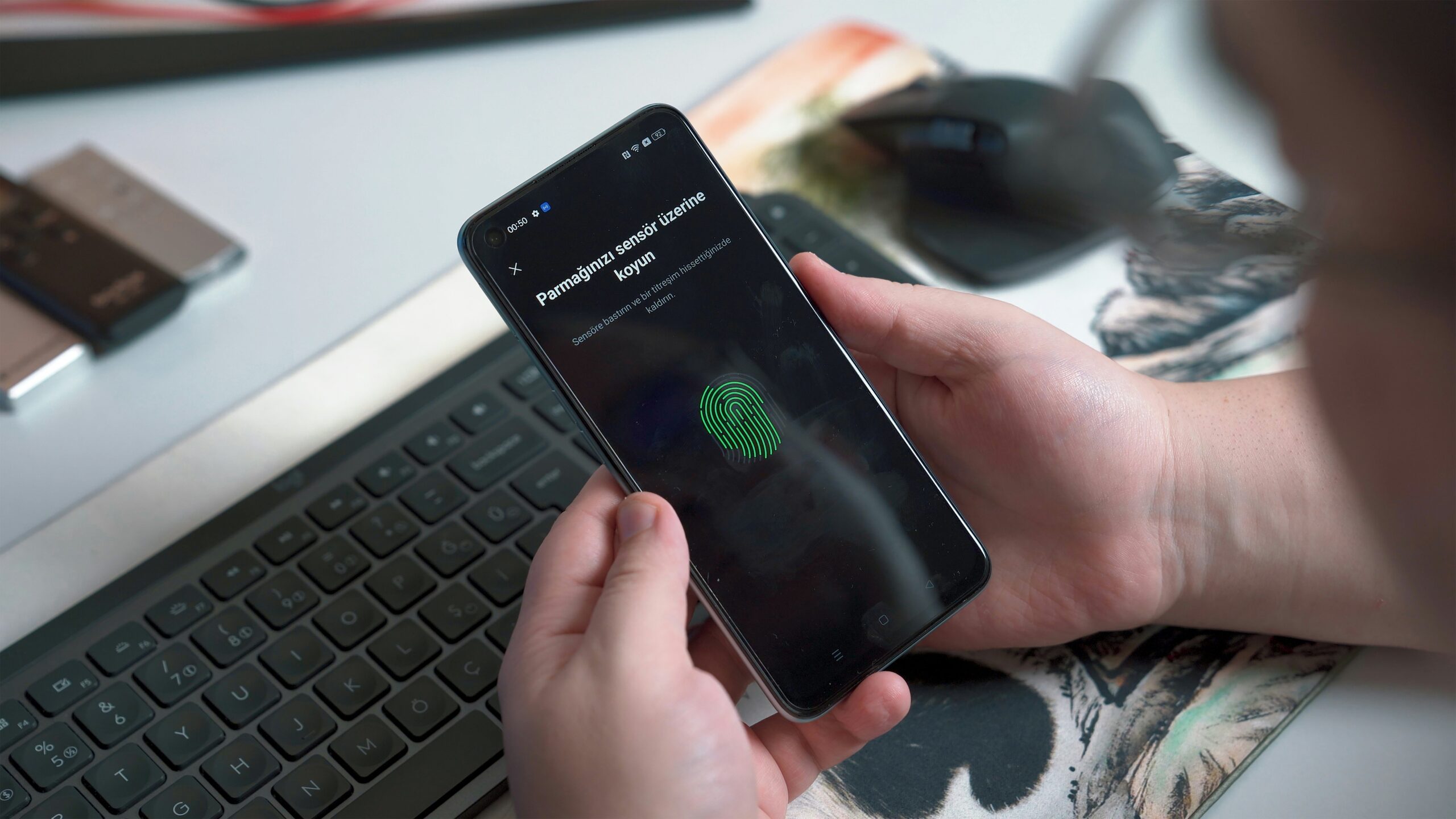Digital Identity: Will Your Online Presence Define You in 2025?
 Photo by Markus Spiske on Unsplash
Photo by Markus Spiske on Unsplash Introduction to Digital Identity
The concept of digital identity has evolved significantly in recent years, becoming a crucial aspect of modern life. A digital identity refers to the online representation of an individual, encompassing various elements such as social media profiles, online transactions, and digital footprints. As we advance towards 2025, the significance of maintaining a robust and positive digital identity cannot be overstated. It reflects not only personal characteristics but also influences professional opportunities and social interactions.
Digital identities are formed through interactions in the online realm, which includes everything from the content shared on social media platforms to the transactions made on e-commerce sites. Each digital footprint left behind contributes to this identity. In many instances, potential employers and social circles are increasingly likely to scrutinize an individual’s online presence before making decisions that could impact their future. The relevance of digital identity signifies a shift in how individuals are perceived in both personal and professional contexts.
Moreover, as technology continues to advance, new aspects of digital identity are emerging, such as the usage of Artificial Intelligence and blockchain for identity verification. In addition to providing a virtual persona, these technologies are enhancing the ways individuals can establish trust and credibility in various online interactions. Digital identity is thus not just about personal branding; it serves as a tool for verifying authenticity in an increasingly interconnected and digital world.
As we move forward, understanding the multifaceted components of digital identity is essential for everyone. The implications of these identities will become more pronounced in 2025, making early awareness and proactive management vital for navigating the emerging digital landscape.
The Evolution of Online Presence
The concept of online presence has undergone remarkable transformation since the inception of the internet. In the early 1990s, the digital landscape was largely dominated by static websites and rudimentary forums, where individuals expressed themselves through plain text and basic HTML. During this time, user-generated content was minimal, and online identity was primarily established through email addresses and early social platforms like AOL Instant Messenger. As the web evolved, so too did the ways in which individuals and organizations could curate their digital identities.
The late 1990s and early 2000s marked a pivotal shift with the advent of blogging platforms, which democratized content creation. People began to showcase their unique voices and perspectives, paving the way for personal branding. Significant milestones during this era included the rise of platforms such as Blogger and LiveJournal, which enabled anyone with internet access to publish their thoughts and connect with audiences worldwide. These early blogs laid the groundwork for what would eventually evolve into a multifaceted online presence.
The subsequent rise of social media in the mid-2000s introduced a dynamic dimension to digital identity. Platforms like Facebook, Twitter, and LinkedIn revolutionized how individuals and organizations interacted online, allowing users to share updates, engage with content, and network professionally. The concept of a digital footprint became more prominent, as users had to consider how their online activities reflected their personal and professional identities.
As we progressed into the 2010s, the emergence of visual-centric platforms such as Instagram and TikTok highlighted the importance of visual content in shaping online presence. Users now curate their identities through carefully crafted images and videos, emphasizing authenticity and personal narratives. This shift has underscored the growing significance of a cohesive online presence as individuals navigate their digital lives.
With each of these developments, online presence has evolved into a crucial component of one’s identity, necessitating a thoughtful approach to managing digital interactions in a rapidly changing environment.
Impact of Technology on Digital Identity
The rapid advancement of technology is profoundly reshaping our understanding of digital identity. As we move towards 2025, emerging technologies such as artificial intelligence (AI), machine learning, and blockchain are becoming pivotal in defining and refining our online personas. These innovations not only enhance the security and validation of our identities but also enable a more personalized online interaction.
Artificial intelligence plays a critical role in analyzing vast data sets to create nuanced profiles of users, predicting behaviors, and tailoring experiences. Machine learning algorithms can learn from our online activities, preferences, and interactions, allowing for more meaningful engagement with digital platforms. For instance, social media algorithms curate content based on individual user behavior, effectively shaping the narrative of our digital identities. The personalized nature of AI enables users to present themselves in a way that resonates with their target audiences across various platforms.
Furthermore, blockchain technology offers a significant leap in digital identity security. By providing a decentralized and immutable method of storing identity-related information, blockchain solutions enhance the integrity of our online identities. This technology has the potential to thwart identity theft and fraud while fostering trust in digital transactions. With blockchain, individuals can assert control over their personal data, selectively sharing it with trusted entities and ensuring transparency in identity verification processes.
As we transition into an era where technology increasingly mediates our interactions, the importance of a robust digital identity cannot be overstated. The convergence of AI, machine learning, and blockchain will likely lead to a landscape where our online personas are not only reflective of ourselves but also fortified by technology-driven validations, ensuring authenticity and personalization in our digital engagements. The foundation laid by these technologies will significantly influence how we navigate our identities in 2025 and beyond.
Digital Identity and Personal Branding
The significance of digital identity in the realm of personal branding cannot be overstated, particularly as we progress toward 2025. In an increasingly interconnected world, individuals must actively manage their online personas to shape how they are perceived by others. Personal branding is essentially about curating one’s digital identity, which encompasses social media profiles, professional networks, and digital portfolios. An effective personal brand not only encapsulates one’s values and expertise but also contributes to career advancement.
Strategies for building a compelling digital identity involve several key components. First, consistency across platforms is crucial. Whether on LinkedIn, Twitter, or personal blogs, maintaining a uniform image helps establish trust and recognition among peers and potential employers. Moreover, engaging consistently with relevant content ensures that one remains visible and active within their field. Sharing insights, articles, or participating in discussions related to one’s expertise enhances credibility and positions the individual as a thought leader.
Another important aspect of personal branding is authenticity. An individual’s digital identity should reflect their true self, showcasing not only professional skills but also personal interests and values. Authenticity fosters deeper connections with audiences and can differentiate a person in a crowded job market. Additionally, utilizing storytelling techniques to convey experiences and achievements can significantly engage potential employers and collaborators.
Lastly, seeking feedback from trusted peers and mentors can provide valuable insights into one’s digital identity and branding efforts. This feedback can illuminate areas for improvement and ensure that the online presence aligns with personal and career objectives. Ultimately, a well-crafted digital identity can lead to enhanced professional opportunities and networking possibilities, underscoring the essential relationship between one’s online presence and career growth.
Social Implications of Digital Identity
As society increasingly integrates technology into daily life, the concept of digital identity evolves from a mere online presence to a profound representation of an individual’s persona. The implications of this shift touch upon various facets of social interaction, privacy, and digital citizenship. An established digital identity can dictate how individuals are perceived, shaping their reputations both online and offline. In 2025, the importance of managing this identity is likely to be paramount.
The issue of privacy constitutes one of the most pressing concerns related to digital identity. With personal information often shared across numerous platforms, individuals must navigate the fine line between engagement and exposure. Privacy breaches can lead to negative repercussions, not only for one’s social reputation but also for personal safety. Anonymity, once a shield for online expression, may yield to a future where every digital footprint is traceable and scrutinized, thus compelling individuals to be increasingly discerning about their online activities.
The emergence of digital citizenship will also shape social dynamics. As more people interact in virtual spaces, it becomes crucial to cultivate responsible online behavior. This responsibility includes respecting the privacy and opinions of others, as well as understanding the digital rights and norms that govern these interactions. Those who excel in ethical digital citizenship may find that it enhances their social standing and online reputation. This interconnection between digital and real-world identities could lead to greater accountability in online conduct, further influencing personal relationships and societal positions.
Moreover, the potential for an individual’s online reputation to impact personal connections could create new forms of social stratification. Individuals may be judged by their online activities, with reputations that extend into their offline lives, affecting both personal relationships and career opportunities. Hence, maintaining a positive digital identity will likely be essential, as it may dictate access to social circles and professional networks.
Digital Identity Verification and Security
In recent years, digital identity verification has become a pivotal element in safeguarding personal information online. As we approach 2025, the prevalence of identity theft and data breaches raises significant security concerns for individuals and organizations alike. Reports indicate a disturbing trend, with cybercriminals exploiting vulnerabilities in digital systems to access sensitive data. Identity theft not only affects the financial stability of victims but can also have long-lasting repercussions on their overall reputation and trustworthiness.
To combat these threats, various methods for digital identity verification have emerged. Multi-factor authentication (MFA) stands out as a highly effective approach, requiring users to provide multiple forms of identification before gaining access to their accounts. This method dramatically reduces the risk of unauthorized access, as it adds additional layers of security beyond just passwords. Furthermore, biometric verification techniques, such as fingerprint scanning or facial recognition, are increasingly integrated into digital security frameworks. These technologies provide a more secure alternative to traditional identification methods, though they also introduce new privacy concerns that must be addressed.
As we look forward to 2025, advancements in artificial intelligence (AI) and machine learning (ML) are expected to play a critical role in enhancing identity verification processes. AI can analyze vast quantities of data to detect patterns indicative of fraudulent activity, allowing for real-time monitoring and response to suspicious behavior. Additionally, decentralized technologies such as blockchain offer promising solutions to enhance individual control over personal data, ensuring that users can verify their identities securely without relying excessively on centralized authorities. Such innovations will likely shape the future landscape of digital identity verification and security, balancing the need for increased protection with user autonomy.
Legal and Ethical Considerations
The rapid evolution of digital identities necessitates careful attention to the legal frameworks that govern them. As we approach 2025, it is expected that regulations surrounding digital identity will undergo significant transformations. One of the primary areas of focus will be consent. Current laws often fall short in addressing how and when consent is obtained for data use, particularly in the context of user-generated content. Future regulations may mandate clearer consent requirements, ensuring that individuals have a better understanding of how their digital identities are utilized and shared.
Ownership of online data is another critical aspect that is likely to confront legal systems in the coming years. Presently, many users remain unaware that their personal information can be exploited by corporations for profit. As society increasingly recognizes the value of individual data, there may be a shift towards more stringent ownership rights. Legislative bodies might introduce laws granting individuals greater control over their data, thus allowing personal information to be treated as proprietary. This shift would not only empower users but also impose tighter constraints on corporations regarding data usage practices.
Moreover, the ethical implications of digital identities raise important questions for both individuals and corporations. Individuals must be vigilant about the authenticity and accuracy of their online representations. Conversely, corporations bear a considerable responsibility in ensuring that the digital identities they manage adhere to ethical standards. They must engage transparently with users about data collection practices and commit to safeguarding user information against breaches or unauthorized access. As we contemplate the future of digital identities, addressing these legal and ethical considerations will be vital in shaping a responsible and equitable digital landscape.
The Future of Digital Identity in 2025
As we progress toward 2025, the landscape of digital identity is expected to undergo significant transformations shaped by technological advancements and evolving societal norms. One of the most notable trends is the increasing importance of personal branding. Individuals are likely to curate their online presence more meticulously, leveraging various platforms to showcase their skills, experiences, and values. This carefully crafted digital identity will play a crucial role in influencing career opportunities and professional relationships, as employers and collaborators increasingly rely on an individual’s online persona when making decisions.
Moreover, the concept of verification will gain momentum, with digital credentials and verification services becoming commonplace. As the prevalence of misinformation and digital fraud escalates, the demand for trustworthy online identities is set to rise. By 2025, we may see the widespread implementation of decentralized identity solutions that empower individuals to control their own data while ensuring authenticity. This evolution will not only enhance privacy but also promote greater trust among users and institutions, ultimately shaping how society perceives and interacts with digital identities.
Another essential aspect to consider is the influence of social media on personal relationships. In 2025, social platforms will likely serve as central hubs for engagement, affecting how individuals build and maintain connections. The dynamics of online interactions will shift towards authenticity and meaningful engagement, as users grow increasingly discerning about who they connect with and why. Conversely, the digital divide may pose challenges, as those without access to technology risk being marginalized in social and professional contexts.
In conclusion, as we approach 2025, the future of digital identity will reflect the interplay between technology, societal expectations, and individual agency. This evolving paradigm is poised to redefine personal and professional landscapes, making it imperative for individuals to navigate their online presence with greater awareness and intention.
Conclusion and Call to Action
As we navigate the complexities of an increasingly digital world, the significance of managing our online presence cannot be understated. By 2025, the concept of digital identity will likely evolve to become even more critical, as the line between real-life personas and digital representations continues to blur. Throughout this discussion, we have explored various aspects of digital identities, including their formation, the potential risks they pose, and the proactive measures individuals can take to ensure a positive online footprint.
It is essential to recognize that one’s digital identity is a multifaceted construct influenced by online behaviors, social interactions, and the information shared across platforms. Each action taken online contributes to how we are perceived, potentially affecting professional opportunities, social relationships, and personal branding. Given these implications, it is paramount for individuals to reflect on their current online presence and consider how they wish to be represented in the future.
To enhance your digital identity in preparation for 2025, consider adopting proactive strategies. Begin by auditing your online presence—search your name, review privacy settings on social media, and clean up any unwelcome content. Engage positively with online communities and cultivate a professional digital image that aligns with your aspirations. Additionally, stay informed about emerging technologies and platforms, as these will shape how digital identities are constructed and maintained.
In maintaining an intentional and positive digital identity, you are not just safeguarding your reputation; you are also actively participating in the shaping of your future. Take these steps seriously and start today. Remember, your digital presence is an extension of who you are, and it has the power to influence various aspects of your life. Embrace the opportunity to define your online identity as we approach 2025 and beyond.















No Comments